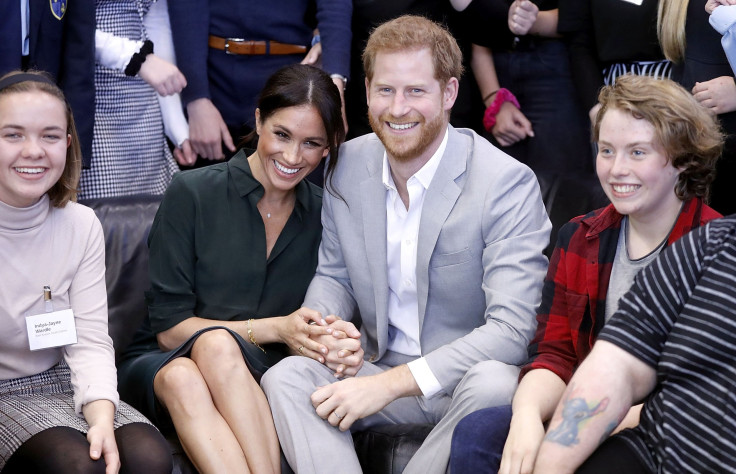When Is Meghan Markle’s Due Date? Everything We Know About Her Pregnancy So Far
After months of speculation about when, or if, Meghan Markle and Prince Harry would be having a baby, the wait is over. Kensington Palace has officially confirmed that the newly-minted Duke and Duchess of Sussex are expecting their first child together.
The palace put out an official statement on Twitter Monday morning, confirming that the pair were expecting, and Markle, who married Prince Harry on May 19, will be having the baby during the Spring of 2019. A second tweet about the news shared that the couple was also delighted to finally announce the news publicly.
“Their Royal Highnesses have appreciated all of the support they have received from people around the world since their wedding in May and are delighted to be able to share this happy news with the public,” the announcement read.
So what can royal watchers expect about this pregnancy? Here’s everything we know thus far about the soon-to-be newest member of the royal family.

Birthdate:
It has been reported that Markle has officially had her 12-week scan, which is considered an important hurdle in most pregnancies. According to the National Health Services, the risk of a miscarriage is much higher in the first three months of pregnancy, meaning that clearing the 12-week mark is usually a point most couples wait on before announcing their pregnancies.
Since pregnancies are nine months, this would likely put Markle’s due date somewhere in April. Depending on the date of conception, the future royal could be born closer to the beginning of the month, or closer to the end. If the birth happens on April 23, the baby would share a birthday with its cousin, Prince Louis, who will be turning one next year.
Title:
While Markle did receive the title of Duchess of Sussex following her wedding, she is not a Princess. However, her child with Prince Harry could have the title of Prince or Princess of Sussex after it is born. Royal protocol does not allow for someone who does not descend from a royal bloodline to take on a title of Prince/Princess, even after marriage to someone who does hold such a distinction. However, their children are eligible for the title because of their lineage.
According to Huffington Post, however, because their child would be seventh in line for the throne, they may actually not be eligible for the distinction of Prince or Princess either, due to limitations on titles that were imposed by King George V in 1917. Queen Elizabeth may be able to step in however and change that, as she did for her other great-grandchildren.
Family Notification:
The royal family was all notified about the news of the pregnancy before it was announced to the public. While it’s unclear how long Queen Elizabeth, Prince Charles and the rest of the family have been aware, it’s been reported that they were able to congratulate the couple during Princess Eugenie’s wedding to Jack Brooksbank last week.
Boy Or Girl:
Though they have confirmed their pregnancy to the public, fans shouldn’t count on finding out whether the couple is expecting a son or daughter until after the birth. While they can opt to learn their child’s gender for themselves ahead of the birth, a standard rule for members of the royal family is that they do not publicly announce that detail prior to that point. Prince William and Kate Middleton followed this rule during each of the Duchess of Cambridge’s three pregnancies.
Royal Tour:
Though she is pregnant, it is believed Markle will still complete her current royal tour, which does include trips to both Tonga and Fiji, where there is a high risk of contracting Zika Virus. According to People Magazine, the royal couple is not changing their travel schedule in light of the news, and the Duchess did seek medical advice before embarking on the tour on what she can and should do to prevent the risk of contracting the disease, which can cause serious birth defects, including microcephaly.
© Copyright IBTimes 2025. All rights reserved.





















